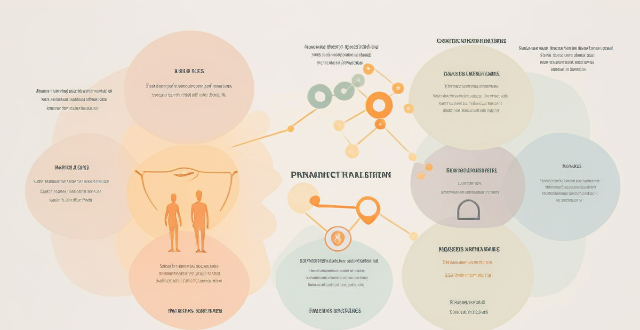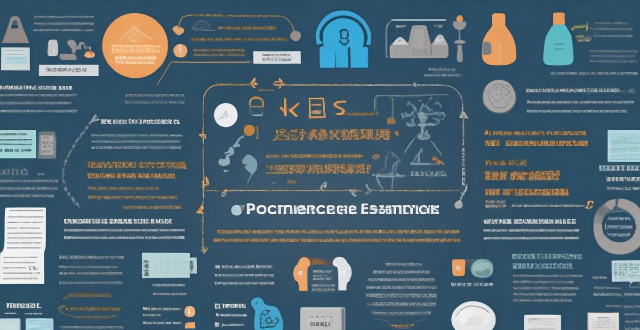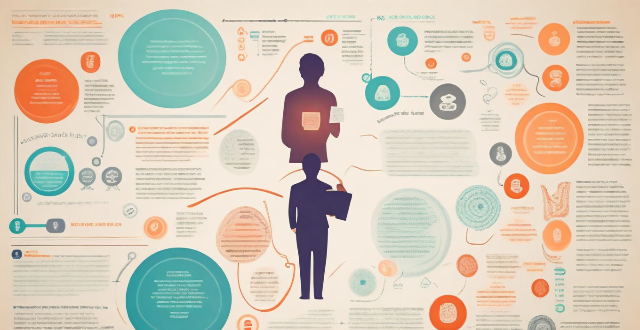Self Exam

Is it normal to experience anxiety before an exam ?
Is it normal to experience anxiety before an exam? Yes, it is absolutely normal to experience anxiety before an exam. In fact, it's a common reaction that many students face. This feeling of unease or nervousness is often referred to as "test anxiety" or "exam stress." Let's delve into this topic further: Understanding Exam Anxiety Exam anxiety can manifest in various ways, such as physical symptoms like sweating, trembling hands, or a racing heartbeat. Mental symptoms like difficulty concentrating or thinking negatively about the exam are also common. Emotional symptoms like feeling overwhelmed or fearful may also occur. Why Does It Happen? Several factors can contribute to exam anxiety, including performance pressure, lack of preparation, past experiences, and perfectionism. Coping with Exam Anxiety There are several strategies to manage exam anxiety effectively, such as adequate preparation, relaxation techniques, positive self-talk, time management, and maintaining a healthy lifestyle. Seeking Support If your anxiety is severe or persistent, consider seeking support from tutoring, study groups, or professional help. Final Thoughts Remember, it's okay to feel anxious before an exam. Acknowledge your feelings without judgment and utilize the strategies mentioned above to manage your anxiety. With preparation and the right mindset, you can approach your exams with confidence and competence.

What advice would a psychologist give for someone with severe exam anxiety ?
Exam anxiety is a common issue that can impact performance. A psychologist offers advice on recognizing symptoms, identifying triggers, coping strategies (time management, study techniques, relaxation techniques, positive self-talk, seeking support), preparing for the exam day (sleep, healthy meal, arriving early), during the exam (reading instructions carefully, staying calm and confident, managing time wisely), and after the exam (reflecting on performance, taking care of yourself). By understanding exam anxiety and adopting effective strategies, individuals can overcome their fears and perform to the best of their abilities.

Are there any proven methods to avoid panic attacks during exams ?
The article provides a comprehensive guide on how to avoid panic attacks during exams, emphasizing the importance of preparation, healthy lifestyle habits, and coping strategies. It outlines the symptoms of panic attacks and suggests methods such as deep breathing, positive self-talk, mindfulness, and distraction to manage anxiety during exams. The article also encourages reflection post-exam and self-care activities to mitigate future panic episodes.

How do I overcome the fear of failing an exam ?
Overcoming the fear of failing an exam involves preparation, positive thinking, effective time management, seeking support, and self-care. Preparation includes creating a study plan, breaking down material, and practicing with past papers. Staying positive involves visualizing success, using affirmations, and celebrating small victories. Managing time effectively means creating a schedule, prioritizing tasks, and avoiding procrastination. Seeking support can come from friends, family, or teachers. Taking care of oneself involves getting enough sleep, eating healthy, and exercising regularly. By following these strategies, one can conquer the fear of failing an exam and achieve academic success.

What is the best way to review and revise my notes before an exam ?
The best way to review and revise notes before an exam involves organizing your notes, using active learning techniques such as self-testing and teaching others, employing spaced repetition for better retention, mixing up study methods, maintaining good health through sleep and nutrition, and conducting a final review closer to the exam date. Consistent and continuous study habits are crucial for success.

How often should a woman have a well-woman exam ?
A well-woman exam is crucial for maintaining good health and preventing diseases. Regular exams can detect abnormalities, early signs of cancer, and monitor reproductive health. The frequency of these exams depends on age, medical history, and risk factors. Women under 30 should have a Pap smear every three years, while those between 30 and 65 should have a combination of Pap smear and HPV test every five years. Women over 65 may consider stopping routine Pap smears after discussing with a healthcare provider. In addition to regular well-woman exams, women should also perform breast self-exams, get mammograms, and get tested for STIs regularly. By following these guidelines, women can ensure that they stay healthy and catch any potential issues early on.

What are some effective methods for reviewing and retaining information before an exam ?
Preparing for an exam can be a daunting task, but with the right strategies and techniques, it is possible to effectively review and retain information before the exam. Some effective methods for reviewing and retaining information before an exam include creating a study plan, using active learning techniques, practicing retrieval and recall, and staying motivated and avoiding procrastination. By following these methods, students can improve their chances of success on their exams.

What role does sleep play in exam preparation ?
The text discusses the crucial role of sleep in exam preparation, emphasizing its impact on cognitive functioning, memory consolidation, and emotional regulation. It outlines various benefits of adequate sleep, such as improved concentration, decision-making skills, learning capacity, and memory retention. Additionally, it highlights the importance of reducing anxiety, increasing motivation, and improving mood during the exam preparation process. The text also provides tips for achieving optimal sleep, including establishing a consistent sleep schedule, creating a comfortable sleep environment, limiting caffeine and nicotine intake, relaxing before bedtime, avoiding heavy meals late at night, limiting daytime naps, exercising regularly, and managing stress levels. Overall, the text underscores the significance of prioritizing sleep as an essential component of exam preparation for enhanced performance and well-being.

What role does preparation play in managing exam-related stress ?
Exam-related stress is a common experience for many students, and it can have a significant impact on their performance. However, preparation is one of the most effective ways to manage this stress. In this article, we will explore the role that preparation plays in managing exam-related stress. Preparation is crucial when it comes to managing exam-related stress. It reduces anxiety, increases efficiency, improves performance, and builds resilience. To prepare for exams, start early, create a study plan, review notes and textbooks, practice with past papers, seek help if needed, take care of yourself, stay positive, visualize success, avoid procrastination, and use relaxation techniques. By following these strategies, you can prepare yourself effectively for exams and manage any related stress. Remember, preparation is key to success!

How does meditation help in reducing exam stress ?
Meditation is a practice that has been used for centuries to promote relaxation, reduce stress, and improve overall well-being. When it comes to exam stress, meditation can be a powerful tool in helping students manage their anxiety and perform better. In this response, we will explore how meditation helps in reducing exam stress. The benefits of meditation include calming the mind, improving concentration, reducing physical symptoms of stress, and promoting better sleep. Regular meditation practice has been shown to improve concentration and attention span, which is particularly beneficial for students who need to focus on studying and retaining information for exams. By improving their ability to concentrate, they can study more efficiently and effectively. Meditation has also been found to reduce physical symptoms of stress such as headaches, muscle tension, and fatigue. By reducing these symptoms, students can feel more relaxed and better prepared for their exams. Additionally, meditation has been shown to promote better sleep by reducing stress levels and promoting relaxation. By getting enough restful sleep, students can wake up feeling refreshed and ready to tackle their exams. To practice meditation for exam stress reduction, find a quiet space where you won't be disturbed or distracted. Set a time limit for your meditation session and start with shorter sessions (5-10 minutes) before gradually increasing the duration. Focus on your breath and use guided meditation recordings or apps if you're new to meditation or struggling to focus. Practice regularly to experience the full benefits of meditation. In conclusion, meditation is a valuable tool for reducing exam stress and improving overall well-being. By calming the mind, improving concentration, reducing physical symptoms of stress, and promoting better sleep, meditation can help students feel more prepared and confident when facing their exams. Incorporating regular meditation practice into their routine can help students reap the benefits and approach their exams with a sense of calm and clarity.

Are there any specific apps designed to aid in exam preparation ?
There are numerous apps designed to aid in exam preparation, offering features such as digital flashcards, video lessons, study tools, countdown timers, and productivity enhancements. By utilizing these apps, students can study effectively and increase their chances of success on exams.

Can eating habits affect my level of stress before an exam ?
Eating habits can significantly affect your level of stress before an exam. Proper nutrition is crucial for maintaining physical and mental well-being, which impacts your ability to handle stress and perform well during exams. Here are some ways in which eating habits can influence your stress levels: 1. **Blood Sugar Regulation**: Eating balanced meals and snacks throughout the day helps maintain stable blood sugar levels, avoiding mood swings and irritability that can increase stress. 2. **Brain Function**: Your brain requires essential nutrients to function properly. Foods rich in vitamins, minerals, and antioxidants support cognitive function and improve focus, memory, and concentration. 3. **Gut-Brain Connection**: There is a strong connection between your gut health and your mental state. Eating probiotic-rich foods promotes a healthy gut microbiome associated with better mood and reduced stress. 4. **Hydration**: Staying hydrated is essential for overall well-being and can impact your stress levels. Dehydration can lead to headaches, fatigue, and difficulty concentrating, adding to pre-exam stress. 5. **Caffeine Intake**: Moderate amounts of caffeine can provide a temporary boost in alertness, but excessive consumption can increase anxiety and interfere with sleep quality, important for stress management and cognitive performance. 6. **Comfort Eating**: Some people turn to food as a coping mechanism when stressed or anxious, leading to overeating or unhealthy choices that may provide short-term relief but ultimately exacerbate stress due to feelings of guilt or discomfort. By prioritizing nutrient-dense foods, staying hydrated, and avoiding excessive caffeine and comfort eating, you can support your body and mind in managing stress more effectively before an exam.

What are some helpful strategies for studying for exams ?
The article provides a comprehensive guide to effective exam preparation, emphasizing the importance of creating a structured study plan, finding an optimal study environment, using active learning techniques, practicing with past exam papers, taking regular breaks, staying organized, seeking help when needed, and maintaining a healthy lifestyle. These strategies aim to enhance focus, memory retention, and overall performance in exams.

What are some strategies to cope with exam stress ?
The text provides strategies for coping with exam stress, which include time management, adopting healthy lifestyle habits, using effective study techniques, maintaining a positive mindset and attitude, and employing test-taking strategies. Time management involves planning ahead, prioritizing tasks, and avoiding procrastination. Healthy lifestyle habits include regular exercise, a balanced diet, and adequate sleep. Effective study techniques involve active learning, reviewing material regularly, and forming study groups. Maintaining a positive mindset and attitude involves positive thinking, setting realistic expectations, and practicing self-care. Test-taking strategies include reading instructions carefully, managing time wisely, and staying calm under pressure. By implementing these strategies, one can effectively cope with exam stress and perform to the best of their abilities.

What role does self-awareness play in self-assessment techniques ?
Self-awareness is a crucial component of self-assessment techniques, helping individuals identify strengths and weaknesses, set realistic goals, enhance emotional intelligence, improve self-confidence, and foster personal growth.

How do I identify my weak areas and improve them before the exam ?
The text provides a comprehensive guide on identifying weak areas before an exam. It suggests analyzing past performances, assessing knowledge levels, seeking feedback, identifying learning styles, managing time effectively, practicing and repeating concepts, seeking additional help, and maintaining healthy lifestyle habits. The steps are designed to help students pinpoint their weaknesses and take targeted actions to improve them, emphasizing the importance of consistent effort and a positive mindset for success.

How can women build their self-confidence in the workplace ?
The text provides a summary of how women can build self-confidence in the workplace through embracing achievements, setting realistic goals, developing new skills, practicing self-care, surrounding themselves with positive influences, speaking up and owning ideas, seeking mentorship, challenging themselves, celebrating uniqueness, and learning from failure.

How can I reduce stress and anxiety before and during exams ?
Exams can be a stressful time for many students, but there are several strategies you can use to reduce stress and anxiety before and during exams. These include early and regular study, creating a study plan, practicing old exams, getting enough sleep, eating healthy, staying positive, avoiding negative thoughts, visualizing success, using relaxation techniques such as deep breathing and meditation, exercising regularly, reading instructions carefully, starting with easy questions, managing your time, and staying calm during the exam.

In what ways do sports promote self-discipline and self-control ?
Sports play a crucial role in promoting self-discipline and self-control by teaching goal setting, time management, perseverance, impulse control, delayed gratification, and stress management. These skills are essential for success in all areas of life, including personal and professional relationships, academics, and careers. By participating in sports, individuals develop valuable character traits that can lead to long-term success and well-being.

Is group study beneficial for exam preparation ?
Group study offers benefits for exam preparation, including knowledge sharing, motivation, improved comprehension, social skills development, stress relief, and better time management. Its success depends on factors like group dynamics and commitment levels.

How can we promote self-care and self-love for women's mental health ?
Promoting self-care and self-love for women's mental health requires a comprehensive approach that includes creating awareness, providing resources, and establishing supportive environments. This involves understanding the importance of mental health, dispelling misconceptions, normalizing conversations, providing accessible information, offering therapeutic support, building community networks, implementing workplace initiatives, advocating for policies, encouraging mindfulness and meditation, promoting healthy lifestyle habits, and fostering self-reflection and growth. By adopting these strategies, we can empower women to take charge of their mental health and lead fulfilling lives.

What are the key self-assessment techniques for personal growth ?
Self-assessment techniques help identify strengths, weaknesses, and areas for improvement. Key methods include reflecting on past experiences, setting goals and tracking progress, seeking feedback from others, keeping a journal or diary, and practicing mindfulness and self-awareness. These techniques provide different perspectives and help individuals understand their personal growth over time.

What is the relationship between self-efficacy and motivation in learning ?
This article explores the relationship between self-efficacy and motivation in learning. It explains how self-efficacy affects motivation, including choice of activities, level of effort and persistence, and emotional response to setbacks. The article also provides suggestions for enhancing self-efficacy to increase motivation, such as providing opportunities for mastery experiences, modeling successful performance, offering positive feedback and encouragement, and helping students set realistic goals.

What kind of food and drinks should I consume to enhance my performance during exams ?
Proper nutrition is vital for exam performance, helping to maintain focus and energy. Recommended brain-boosting foods include lean proteins, complex carbohydrates, healthy fats, and antioxidant-rich items. Hydration is also key, with a suggestion to avoid sugary drinks and excessive caffeine. Meal ideas provide balanced options for breakfast, lunch, snacks, and dinner, emphasizing the importance of consistent healthy eating habits in the lead-up to exams.

How does exercise influence self-esteem ?
Exercise has a profound impact on self-esteem, positively influencing confidence, body image, and mental health. Physical benefits include weight management through fat reduction and muscle tone, as well as improved cardiovascular health and immune system function. Mental benefits include stress reduction through endorphin release and mindfulness, and enhanced cognitive function with improved memory and problem-solving abilities. Social benefits come from community building through group activities and support systems, as well as personal achievement through goal setting and feedback. Overall, regular physical activity can significantly enhance self-esteem by promoting physical, mental, and social well-being.

What are the benefits of regular breast exams for women's health ?
Regular breast exams are crucial for women's health, offering early detection of breast cancer, improved awareness, reduced anxiety, opportunities for education, and promotion of preventive care. It is vital for all women to prioritize these exams as part of their overall health care routine.

Are there any particular self-defense techniques recommended for female travelers ?
Self-defense techniques are essential for female travelers to stay safe while exploring new places. Learning basic self-defense moves, taking a self-defense class, and practicing situational awareness can help reduce the risk of becoming a victim of crime during travels. It is crucial to trust your instincts and seek help if needed.

How often should I perform a self-assessment to track my progress ?
Self-assessment is essential for monitoring progress in various aspects of life. The frequency of self-assessment depends on individual goals and the specific area of focus. For short-term goals, weekly or bi-weekly assessments are beneficial, while medium-term goals require monthly evaluations. Long-term objectives need less frequent but more comprehensive quarterly or semi-annual reviews. Key elements of effective self-assessment include clarity on goals, measurable criteria, reflection, adjustment, and accountability.

How does self-employment affect my personal income tax calculation ?
Self-employment affects personal income tax calculation by requiring net income reporting, quarterly estimated tax payments, utilizing deductions and credits, filing specialized forms, and paying self-employment tax. Staying organized and informed about tax laws is crucial for effective tax management.